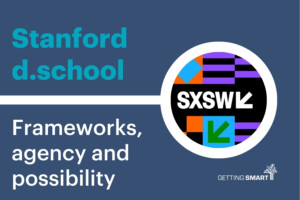Venture University: A Trade School for the Innovation Economy

Want to be a venture investor? The best way to learn is to start investing and learn on the job. Wonder where you could do that? Check out Venture University.
Founded by entrepreneurial duo and married couple, Jenna Fernandes (CEO & Head of Admissions) and VC investor J. Skyler Fernandes, Venture University is an alternative MBA. It’s a trade school for people interested in venture capital and private equity. The university has amassed an impressive list of advisors, speakers, expert instructors, and a team including Andrew Zalasin, Managing Director of Venture University, who will be running the day to day program and investment fund in San Francisco. Andrew was previously a General Partner at RRE Ventures.
Launched in January, Venture University grants no credits, no degree. The tuition becomes an investment fund. Learners can earn tuition back and then some–or not, depending on how their investments fair. Applications are open for the summer and fall of 2018 and Spring of 2019, in Silicon Valley. After that, it’s NYC and Chicago. They already have 2,000 applications for 35 spots.
Deal Structure
Tuition is $15-20,000 per semester, a similar to top business schools. Participants can choose one, two or three semesters.
A large percentage of the tuition is put into an investment fund (up to $350,000 with 35 individuals) and is invested during the program period, providing individuals the ability to benefit from the financial upside from the investments made.
Participants source investment opportunities, review pitches, meet with startups, conduct diligence, present investment recommendations, and vote on which investments to make. A typical cohort will invest in a handful of companies.
If the investments pan out, participants can earn back their tuition–or more. Won’t that take a while? Fernandes said, “The feedback loop on venture and private equity investments is initially two to seven years. The losers you will know about usually within two years, potentially some winners or at least indications of winners, and longer for actually realizing the win via an exit.”
“During the program we will be covering a number of case studies, where we give examples of companies, the class evaluates and is then shown the outcome. This will provide an immediate feedback loop on evaluation versus future reality and what caused that outcome,” added Fernandes.
“Returns from each class will be reviewed by future classes so the feedback loop will be shorter on this too with future classes,” said Fernandes.
If participants are currently enrolled in a university degree program they may be able to receive college credit for participating in Venture University’s work program via internship credit.
Should you apply? Venture University “seeks candidates who have a strong level of intellectual curiosity, a passion for innovation, are contrarian thinkers and have a desire to work with and invest in disruptive companies that are changing their industries and building the future.” You also have to be willing to bet on your ability to win your tuition back.
Venture Backstory
Fernandes is managing director of Cleveland Avenue, a growth venture fund focused on restaurants, food and beverage brands, and technology. It is also an incubator lab for new concepts and a consulting group with leading industry veterans in real estate site selection, franchising, operations, marketing and technology. The group was cofounded by the former CEO of McDonald’s.
After the Great Recession, Fernandes invested for Centripetal Capital Partners. In 2014, Fernandes founded Simon Venture Group, the investment arm for real estate giant David Simon of Simon Property Group, an S&P 100 company.
As someone who suffered through a traditional MBA and learned venture investing on the job, Venture University looks like an attractive alternative.
This post was originally published on Forbes.
Stay in-the-know with all things EdTech and innovations in learning by signing up to receive the weekly Smart Update.






0 Comments
Leave a Comment
Your email address will not be published. All fields are required.